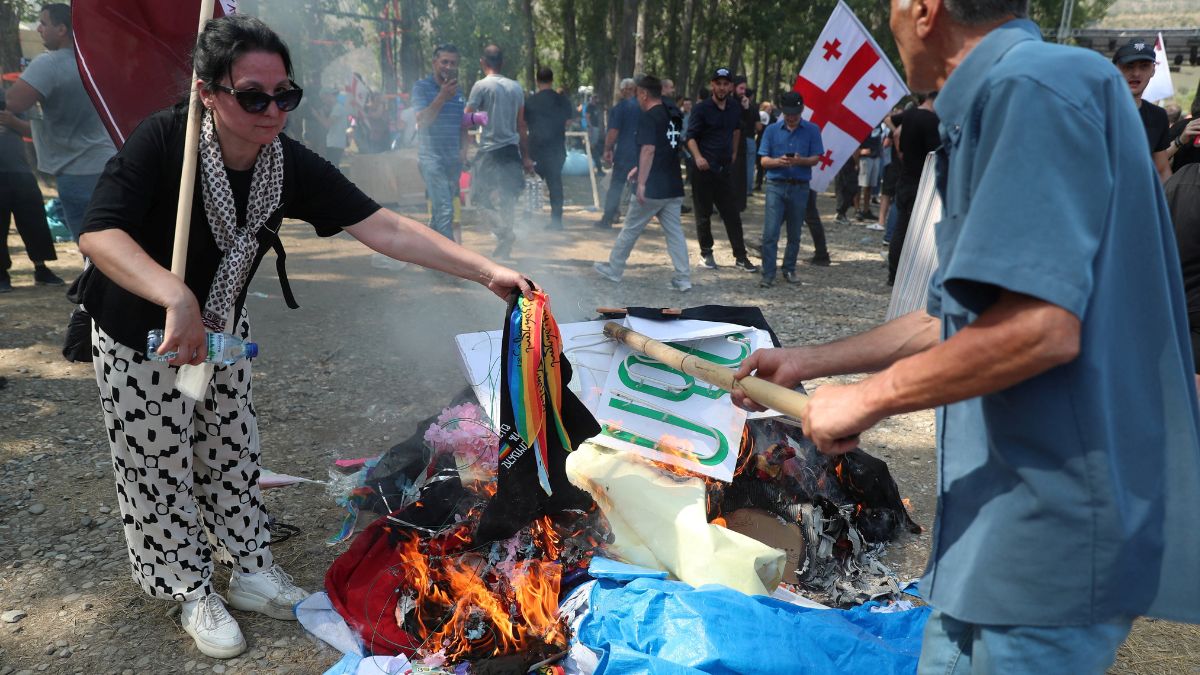The law curbing LGBTQ rights in Georgia has passed a significant hurdle after it was signed by the parliamentary speaker Shalva Papuashvili on Thursday despite the president’s protest.
Lawmakers from the ruling Georgian Dream party last month approved the bill, which bans gender transitions and could outlaw pride marches and displays of the LGBT rainbow flag. The party says the law is necessary to protect Georgia’s Orthodox Christian church from outsiders.
However, President Salome Zourabichvili refused to sign the bill into law given his criticism of the ruling party. Critics of the law and LGBTQ activists say that the push behind the controversial move is to boost support among conservative voters ahead of the October 26 election.
Here are five things to know about the law:
The new law will criminalise the organising of pride parades or the display of the LGBTQ rainbow flag. It will also impose censorship of films and books
It will ban gender transitions and prohibit homosexual people from adopting. The law will also nullify same-sex marriages performed outside Georgia
The ruling Georgian Dream party says the law is necessary to protect Georgia’s Orthodox Christian church from outsiders
Many pro-LGBTQ groups in the capital city of Tbilisi have said that the enactment of the law might force them to shut doors
LGBT rights are a fraught topic in Georgia, where polls show broad disapproval of same-sex relationships, and the constitution bans same-sex marriage. Participants in Tbilisi’s annual Pride marches have come under physical attack by anti-LGBT protesters in recent years
With inputs from Reuters


)

)
)
)
)
)
)
)
)



